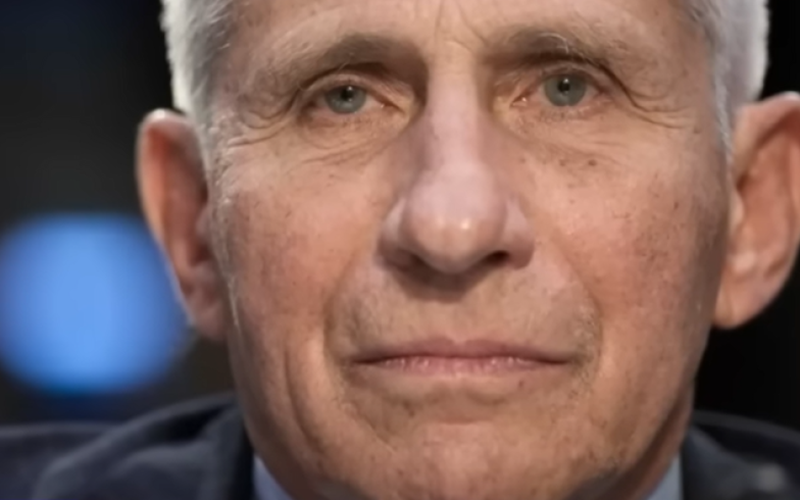

I was intrigued by the “Lessons Learned” report released this month by the Committee to Unleash Prosperity.
For starters, I was intrigued with the name of that committee.
Why would we want to chain prosperity? It seems we should be running through sun-drenched meadows with arms wide open to meet it.
Alas, current economic realities make that joyful embrace difficult.
Getting back on track here, the report released by the committee was a detailed look back at the nation’s response to the COVID-19 Pandemic.
It looked at 10 key lessons broken down with very easy-to-read and follow subheads. It hit the high points of what went wrong … lockdowns, school closures, masks, the vaccine, and much, much more.
It is very interesting reading.
“The idea that we could sort of wing it and come up with the right thing in order to ignore a century of evidence, and then suppress anyone who’s criticizing you...I have no idea why the government thought that was going to work out but it very clearly didn’t,” Dr. Jay Bhattacharya, Professor of Health Policy at Stanford University, told Washington Watch host Tony Perkins.
The effects have been long-lasting.
“So many people lost their businesses, so many people, their kids became depressed, were up to two years behind in their schooling, many people dropped out of school. There were huge numbers of people who skipped their cancer screenings and now have late-stage cancer,” Bhattacharya said. “We’re in a bad place, and all we really needed was an honest discussion."
The government prevented that honest discussion from happening, the professor said, because of a "censorship regime."
The report pulled no punches but also didn’t identify problems without offering solutions. As a nation we faced a medical emergency I’d not seen in my lifetime.
There was sickness; there was death. There were demands to act quickly. We did that with Operation Warp Speed.
What we didn’t do was reassess when things weren’t working.
The report was especially critical of COVID Czar Anthony Fauci.
Among the report's conclusions was that pandemic decisions need to be made by elected officials and not outsourced to medical experts.
“There is a serious structural problem when the principal face of pandemic response policy – Anthony Fauci – is the head of the largest federal grantmaking entity on which nearly all medical experts are dependent for their research funding," the report states. "This structural problem created an environment in which it was very difficult for most experts to break with the dominant narratives on lockdowns, masks, or overwhelmed hospitals regardless of their own research findings, experiences, or judgment."
Even worse, the report points out, the few who did speak out and went against the "party line" were subjected to abuse and punishment for doing so.
Bhattacharya agrees. Too often, he said, “medical experts” aren’t in tune with the broader needs of society.
“They view everything from the narrow prism of, how can I prevent the disease that I’m trained to prevent?" he said. "Health is broader than the prevention of a single disease as we saw during the pandemic."
Those medically-trained professionals were not trained to understand learning loss in children or what a closed-down church does to a congregation starved of community and fellowship.
"They're not actually well-equipped to make the kind of trade-off decisions that need to be made,” Bhattacharya said.
It’s interesting that the report comes while the U.S. appears to be in full support of the “Pandemic Preparedness Agreement” being pushed by the World Health Organization.
Critics, and frankly, there aren’t enough of them on this matter right now, call this a power grab that robs the U.S. of its sovereignty.
The U.S. isn’t bound to obey dictates of the WHO, an advisory arm of the United Nations, but it is bound to abide by the International Health Regulations – along with more than 190 other countries. Part of the WHO’s plan is to amend the IHR if it gets the support of U.N. member nations. These amendments would grant WHO the authority to compel complicity during a worldwide health emergency, and it would be WHO that would define what constitutes such a crisis.
This will happen or not happen at the WHO’s general meeting in Geneva in May. You can follow the status of the Pandemic Preparedness Agreement at AFN.net.
While the U.S. still has its sovereignty on health matters the “Lessons Learned” report actually suggests more government intervention. Just not from a single chief executive.
The report says we need to be proactive.
It encourages states to be involved, not in a patchwork of individual emergency response laws, but in concert with Congress.
Together they should define “public health emergency” with strict limitations on powers conferred to chief executives during that time. It also calls for time limits for that power which would then require legislation to be extended.
Translation: governance during a health emergency should happen through we the people, not through executive order and not through unelected bureaucrats.
It’s not a bad plan for governance on a daily basis.

